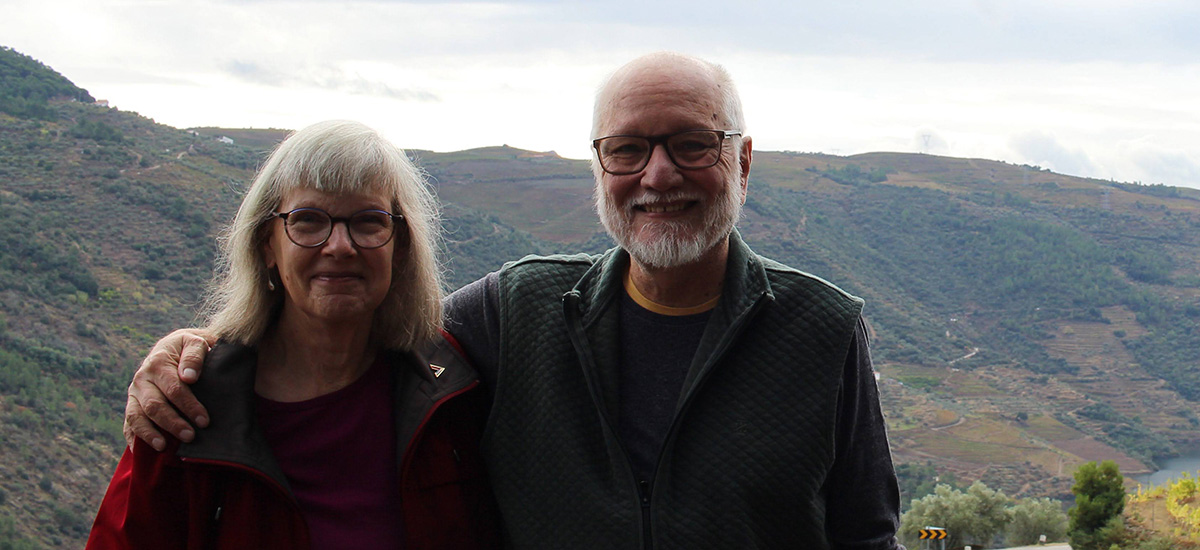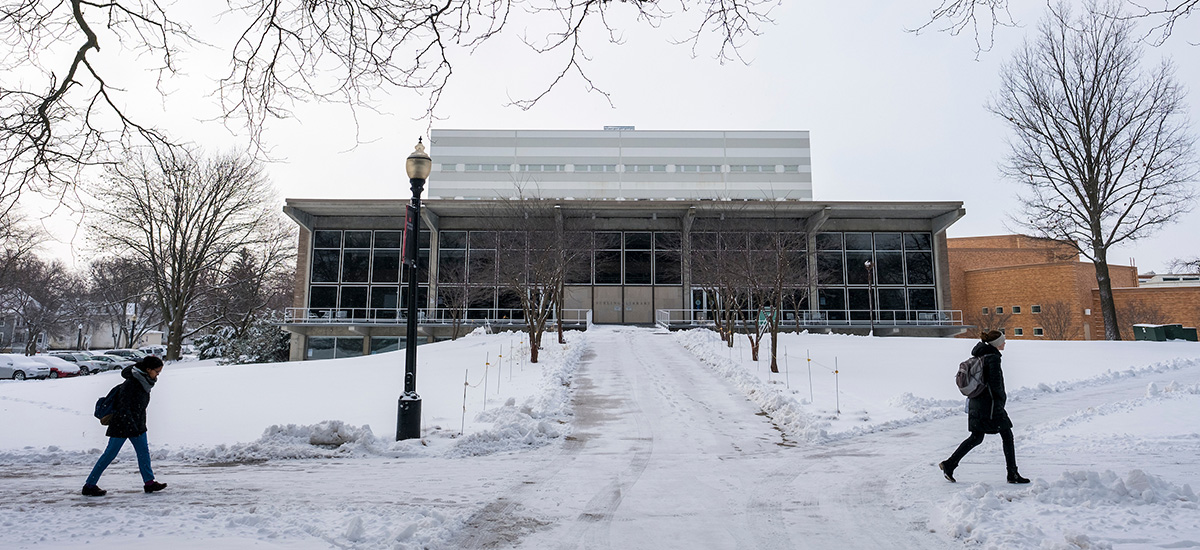Funding library innovation
November 20, 2025 — Tom Dorst ’73 and Connie Poole ’73 both retired from fulfilling careers as academic librarians. They admit a bit sheepishly that they were not big users of Grinnell’s Burling Library while students, but they have watched it evolve with deep appreciation since.
In addition to being longtime supporters of the Pioneer Fund, the couple’s attachment to the library inspired them to establish the Dorst-Poole Library Endowment Fund in 2006. Their hope was to create an impetus for innovation.
“We reached a point in our careers where we understood having money that is not part of the base budget is a really freeing thing for a library director,” Poole said.
 Connie Poole ’73 and Tom Dorst ’73 first established an endowment for Grinnell’s libraries in 2006, and the couple continues to build the fund.
Connie Poole ’73 and Tom Dorst ’73 first established an endowment for Grinnell’s libraries in 2006, and the couple continues to build the fund.
The couple has continued to build the fund over the years. This summer, they committed to an additional $145,000 gift, which they will make annually tax-free as IRA Qualified Charitable Donations. In addition, the couple decided to establish a $210,000 planned gift for their endowment.
“They’re extremely engaged donors,” says Mark Christel, Samuel R. and Marie-Louise Rosenthal Librarian of Grinnell College. “Connie and Tom hear our ideas about what current students need and provide support to help make those things happen. They are genuine and generous people who want to give the gift of Grinnell to future generations.”
The couple’s donations have increased diversity and social justice materials in the collection, from the Vietnam War-era to the Africa diaspora. For many years, the Dorst-Poole Fund supported research tutors and other student research staff in the library. Those students have gone on to receive Fullbright scholarships, become history professors, and enter information science as a career, Christel says.
“Being a student worker in circulation and reference at Burling and Kistle Libraries changed my career trajectory,” says Sarah Arena ’16. “One conversation with librarian Kevin Engel about changes in scholarly publishing sparked a passion for open access and making information freely available that has been with me throughout my career.”
After earning her Master of Library and Information Science at Simmons University, Arena served as an open access fellow at Harvard University Library. She now manages data for a large Harvard Medical School lab, where she “continues to champion open access and open science to make cutting-edge research available.”
The college experience at Grinnell was foundational for Dorst and Poole, offering unparalleled learning opportunities. At a time when there was only one computer on campus, the undergraduate biology majors had access to a full semester, hands-on course on electron microscopy. Poole, who doubled majored in anthropology, joined a professor-led summer dig in southwestern Colorado during which they found a multitude of artifacts and explored nearby sites.
 Burling Library has additional diversity and social justice materials in the collection thanks to the Dorst-Poole Library Endowment Fund.
Burling Library has additional diversity and social justice materials in the collection thanks to the Dorst-Poole Library Endowment Fund.
Poole’s future career emerged from conversations with her roommate and an English professor. She earned her Master of Arts in Library Science from the University of Michigan with a specialization in academic medical schools. She retired from the Southern Illinois University School of Medicine after decades serving as the head of technical services, associate dean for information resources, and director of the school’s medical library.
Dorst’s path to academia was not so direct. His second master’s in American history led to work in university archives, where he also earned his Master in Arts in Library Science from the University of Michigan. He retired as the director of administration and planning at the Consortium of Academic and Research Libraries in Illinois. Earlier positions included coordinator of the Illinois Cooperative Collection Development Project at DePaul University and director of the University of Illinois Digital Academic Library.
Dorst and Poole know firsthand that while the hunger for knowledge is universal, library needs and technologies are rapidly changing. They are discussing with Grinnell librarians how their future gifts support current or emerging initiatives. There are some interesting options to choose from: summer Mentored Advanced Project (MAP) research; the Vivero digital fellows program; or the Haitian Arts Digital Crossroads (HADC) Project, which digitizes and makes accessible endangered Haitian art.
The couple is deeply invested in Grinnell’s success, believing they received much more than bachelor’s degrees. It is where they met as scholarship students employed in food services during their freshman year. As they return to campus for class reunions and other visits, they are reminded of how else the experience changed their lives.
“We owe so much to Grinnell,” Dorst says. “I was a small-town boy, and my worldview was molded and informed there. It gave me an abiding curiosity that has informed my life ever since.”
—by Kim Kobersmith